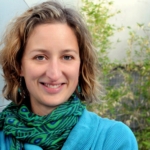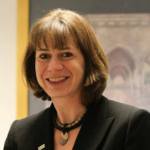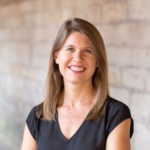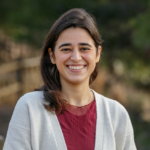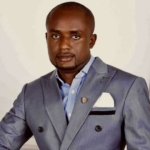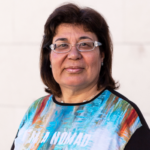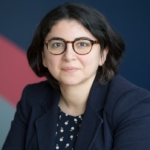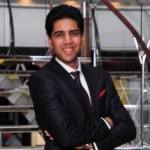 The EPC’s Sustainability Toolkit is supported by Siemens and the Royal Academy of Engineering.
The EPC’s Sustainability Toolkit is supported by Siemens and the Royal Academy of Engineering.
We would like to thank everyone who has contributed to making the Toolkit such a useful and vital resource.
If you would like to add or update your bio, please contact Crystal Nwagboso or Wendy Attwell.
Cindy has taught thousands of people through courses and workshops, around the world and online, in the fields of biology, sustainability and biomimicry. She is honored to be a collaborative partner on the Engineering for One Planet (EOP) initiative since its inception and serves as a Strategy Consultant for EOP. She is co-author of the EOP Framework and new framework companion teaching guides, and active EOP Network Member. Cindy holds a MS from Oregon State University, a MEd from Griffith University (Queensland, Australia), and a BSc in biology from the University of Guelph (Ontario, Canada). She is also Royal Academy of Engineering Visiting Professor at Aston University teaching professional skills, ethics, sustainability, global responsibility, inclusive outcomes, and ESG to MSc and Degree apprenticeship students. She is a Fellow of the Royal Academy of Engineering and sits on the Education and Skills Committee, as well as the Africa Engineers Steering Group, and is UK representative of the World Federation of Engineering Organisations, and incoming President of the Commonwealth Engineers’ Council. She is also a Fellow of IOM3 where she sits on the Sustainable Development Group. Kirsty Connell-Skinner Based at Edinburgh Napier University, she combines over a decade of experience in philanthropic fundraising with innovative management techniques gained from her MBA to drive forward public and private investment in the next generation of engineering, computing and business professionals, with a particular focus on timber construction as Editor of Timber Development UK’s Knowledge Library. Passionate about empowering change and delivering equality as a feminist and activist, Kirsty is Treasurer of the Scottish Women’s Budget Group and former Chair of the Scottish Fundraising Standards Panel, the self-regulatory body for charity fundraising in Scotland. SJ Cooper-Knock PhD Emma Crichton CEng MICE Engineering shapes our world, and Emma dedicates her career to reshaping how we engineer to secure a safe and just future for all. Emma is a chartered civil engineer with over a decade of experience in the water and social sectors across the UK and India. A trained facilitator and passionate advocate for globally responsible engineering, Emma currently serves as Innovation Director at Engineers Without Borders UK, where she has expanded educational initiatives to deliver over a million hours of learning on globally responsible engineering annually. Beyond her role at Engineers Without Borders, Emma is a trustee at Azuko, an architecture charity, and chair at the Useful Simple Trust, a certified B-Corp and Social Enterprise. She also represents Engineering UK on the board of the Engineering Council, the UK’s regulator for the engineering profession. Dr Panos Doss CEng SFHEA MIMechE He is the Director of Sustainable Engineering (MSc) at Aston University, and a member of the Sustainable Development in Teaching working group at Aston University where co-Leads the Education for Sustainable Development and Engineering Ethics research sub-group. In partnership with Engineers without Borders UK since 2018, Panos has been successfully embedding sustainability within engineering programmes, where students participate in Global Engineering Design Challenges. He leads the Efficiency for Access Engineering Design Challenge, and the delivery of modules including Sustainability in Engineering Practice, Life Cycle Analysis & Circular Economy, and Pathways to Net Zero. Bringing his knowledge and expertise, Panos aims to help shape and develop globally-minded future generations of engineers that are agents of change for sustainable development. Pamela Dugdale Ph.D Laura Fogg-Rogers Wendy Fowles-Sweet Professor Jarka Glassey FREng CEng FIChemE PFHEA Dr Alicia Gonzalez-Buelga She has served as project manager for the EPC’s Ethics and Sustainability Toolkit initiatives, is Transferable Skills Lead for the Centre for Advanced Timber Technology at NMITE and is Visiting Professor in the School of Computing, Engineering, and the Built Environment at Edinburgh Napier University. She has led national and international workshops on interdisciplinary learning and teaching and worked with academic and industry partners on various engineering education initiatives. She has recent publications in the International Journal of Engineering Education and The Journal of Problem-Based Learning in Higher Education. Professor Tim Ibell FREng FIStructE FICE FHEA Professor Ioannis Ieropoulos Aditya Johri She is interested in interdisciplinary research at the intersection between engineering and socio-environmental systems. She believes in sustainable engineering as key for making this world a better place by improving people’s quality of life and solving several of today’s most important global challenges. She is also an EPC Ethics Ambassador. She is passionate about sustainable technologies; with rooftop solar, domestic storage, and a driver of electric vehicles for ten years, this is more than a job, it is a way of life. She is also an EPC Ethics Ambassador. Maryam Lamere, PGCert, MPhil, MEng Dr Irina Lazar She also leads a programme on Science and Engineering for Social Change, combining technical training with social scientific and policy skills. Irina hold degrees in Civil and Mechanical Engineering and is passionate about engineering and education alike, with her research interests spanning across inclusive engineering education, programme design and blended teaching and learning. Irina believes sustainability should be at the core of engineering education and deeply embedded into programmes and is working on developing an online platform to enable collaboration in this area. Marianthi Leon Dr Lampros Litos Diana Adela Martin Millie May Ema Muk-Pavic (CEng, FRINA, SFHEA) Mike Murray BSc (Hons) MSc PhD AMICE SFHEA Peter Mylon MEng PhD CEng Onyekachi Nwafor is a seasoned professional in the field of renewable energy and energy transition, with a strong passion for sustainability and driving the transition towards a low-carbon economy. He is currently the CEO of KatexPower. His expertise includes designing and implementing solar PV systems to provide clean and sustainable energy services to off-grid and underserved communities. Onyekachi is also the membership manager for Western Africa at the Global Waste Cleaning Network, advocating for environmental protection and waste management. With a background in electrical engineering, green energy, and climate finance, he is also a certified energy transformation expert. He has actively participated in various international conferences and workshops, where he shares his knowledge and experiences with industry experts and institutions. He is also an EPC Ethics Ambassador. Crystal Nwagboso Crystal Nwagboso is a Project Manager, Research and Editorial Executive/Analyst at the Engineering Professors’ Council. She is responsible for project managing EPC Online – the initial development and its continuous improvement, maintenance, and daily operations – conducting tasks such as WordPress backend & frontend CRM/CMS testing, and collaborating with external website developers. She also leads development meetings, formulates agendas, minutes, and action logs on a weekly basis, analyses data, and is in charge of a project management platform and various spreadsheet logs to document and monitor tests. She is proficient in using HTML coding and has utilised Python programming language software. Crystal was also involved in the now-completed, website content migration process. In conjunction with this, Crystal also formulates, proofreads, and revises material for the website and has created a user manual outlining the technical intricacies of the website. Crystal also worked closely with Dr Sarah Jayne Hitt on the development, creation, and delivery of the EPC’s Siemens and RAEng-funded Sustainability Toolkit project, which she was involved in since the beginning phases. She was in charge of conducting research, analysing data, providing project management and executive support, and was an active member of the Sustainability Toolkit Steering Group – she also played a role in putting the group together. Crystal created and designed all Sustainability Toolkit pages, developed resources, edited and reviewed content, coordinated webinars, produced social media content, and more. Additionally, Crystal was commissioned to create the Sustainability Toolkit Resources Library. She is currently actively engaged in developing and planning the upcoming phases of the toolkit. Crystal was seconded by Canterbury Christ Church University to lead on the rebrand and migration of the EDGE Toolkit (now Inclusive Employability Toolkit) to the EPC website, working in close collaboration with Dr Anne Nortcliffe. Crystal created and designed every Inclusive Employability Toolkit page on EPC Online, further edited and curated content, conducted research, analysed data, co-led interviews with students and academics to gather insights on toolkit usage, developed a case study with Dr. Anne Nortcliffe, made an additional resource for the toolkit (Inclusive Employability Toolkit – University Career Services Library), coordinated events to showcase the toolkit and more. Crystal also works closely with the EPC’s DEI Community of Practice. Additionally, Crystal assists the executive team with a plethora of tasks including planning and coordinating events, scheduling and setting up Zoom webinars and meetings, liaising with over 8,000 EPC members in the database; ensuring all members are informed of the latest developments at the EPC and initiating discussions, conducting research analysis for upcoming projects, updating the EPC’s database and social media channels, social media marketing, assisting with the relaunch of the EPC’s newsletter, minute taking, composing press releases, business development, stakeholder engagement and more. Crystal graduated from King’s College London and has a degree in English Language and Linguistics. Gabrielle Orbaek-White PhD Goudarz Poursharif CEng SFHEA He is the Chair of Institute of Environmental Management and Assessment’s Birmingham Steering Group and the Chair of Sustainable Development in Teaching working group at Aston University. His two main passions are education and engineering for a sustainable development, so since 2012, Goudarz has combined his two main passions by embedding Education for Sustainable Development (ESD) in the Engineering curricula of both University of Sheffield and Aston University as well as working directly with industry to upskill their sustainability skills. He has funded the Engineering for People Design Challenge at Aston University and co-led the development and implementation of MSc Sustainable Engineering Aston University. Dr Rebecca Raper Dr Manoj Ravi FHEA Before joining the EPC, Johnny has already worked on many issues of concern to our members. Over the past 25 years, he led Push’s research – such as on drop-out rates and student debt – which has had direct impacts on policy. Johnny’s thought leadership, such as his papers for a graduate levy and a national access fund (2018) and on employability (2015) for the Higher Education Policy Institute, have been influential throughout the sector. Policy issues are also a significant part of his consultancy work, along with communications. His clients have included the European Commission, HEFCE, U-Multirank, as well as many universities, recruiters and charities. He’s a regular speaker at conferences, awards and in schools. In 2013, his novel A Human Script was published. Neil Rogers Dr. Jemma L. Rowlandson Dr. Shah is a Lecturer (Assistant Professor) in Mathematics and Engineering Education at Queen Mary University of London (QMUL) with research interests in applied mathematics (nonlinear dynamics, analytical mechanics and mathematical modelling) as well as mathematics and engineering education pedagogy. He is also the School Lead for Inclusive Scholarship for the Centre for Academic Inclusion in Science and Engineering (CAISE) at QMUL, the Research Seminars Coordinator, Centre for Research in Engineering and Materials Education (CREME)and a Research Integrity Champion for the Queen Mary Research Integrity Committee (RIC). In addition to this, he is also an Associate Member of the UCL Centre for Engineering Education (CEE) and serves as the Co-Chair of the Ethics Ambassador Community for the Engineering Professors Council (EPC). He completed his PhD in Applied Mathematics (Nonlinear Dynamics) at University College London (UCL), where he also taught on a wide range of courses in mathematics, physics and engineering for which he received several teaching excellence awards. In addition to this, he is an accredited Fellow (FHEA) of the UK Higher Education Academy and has also been a Guest Mathematics Teacher at the London School of Economics (LSE). Prior to this, he taught GCSE and A-Level Mathematics as a full-time secondary school teacher at several independent schools across London. He also has an MSc in Mathematical Modelling and Scientific Computing from the University of Oxford (St. Anne’s College) and a BEng in Mechanical Engineering with Business Finance from UCL. Dr Scott Strachan BEng (Hons.), PhD He has been active in the universal energy access research (SDG7) since 2006. He was a founder of the Electronic and Electrical Engineering (EEE) Department’s staff/student outreach Gambia Solar Project and Tamil Nadu Solar Project; designing and installing off-grid solar PV systems to rural schools and health clinics. He is Co-Director of the Vertically Integrated Project for Sustainable Development programme (winner of the 2019 International Green Gown Award for Student Engagement and 2020 AASHE Award for Campus Sustainability Research). He is also Education for Sustainable Development lead in the University’s Centre for Sustainable Development and Co-Convenor of the ESD Topic Support Network for Learning for Sustainability Scotland, a UN Regional Centre of Expertise. Scott also Chairs the University’s ESD Working Group and Strathclyde Climate Ambassadors’ Networks (SCAN), which won the 2022 UK & Ireland Green Gown Award for Student Engagement with Climate Education workshops. Dr Gilbert Tang Emanuela Tilley PFHEA The Integrated Engineering Programme is an award winning teaching framework embedded in the learning experiences of undergraduate students across UCL Engineering to better prepare them for tackling future global challenges. Professor Tilley has established an international profile in the areas of leading curriculum design and development as well as cultural change required to support and foster innovation in engineering education within higher education. She is a Board Director for SEFI (European Society of Engineering Education) and Director of Education at the UCL Centre for Engineering Education (CEE). Erica Trump Dr Jonathan Truslove MEng PhD In previous roles Colin has been a Head of School for Engineering at Ulster for 8 years, and the institional lead for Learning and Teaching for the first 15 months of the COVID-19 pandemic. He is a previous Past President of the (EPC) Engineering Professors’ Council. He is Chartered Engineer and a Chartered Mathematician with significant software development and architecture experience. Colin is a Principal Fellow of the HEA (Higher Education Academy), a National Teaching Fellow, a Fellow of the (IET) Insitition of Engineering and Technology, and a Fellow of the (IMA) Institute of Mathematics and its Applications. At the Royal Academy of Engineering, she’s working with multiple teams and wider stakeholders to re-define engineering skills for the 21st century, part of which includes a project to transform how we educate and train our undergraduate engineers across UK universities so that they graduate well equipped to design, build and manufacture a net positive world. With over 30 years’ experience of driving policy change, strategy, business development and programme delivery for science and engineering organisations, she’s motivated by innovation and transformation – and above all by driving impact for societal benefit. She’s led projects to develop a new vision for science and maths education for the Royal Society, undertaken research and programme development to stimulate public engagement by UK researchers, promoted engineering for global construction company, Balfour Beatty, and as part of a senior team at the Engineering Council, transformed the engineering profession and its structures in 2002, creating sister organisation, Engineering UK. She is also vice-chair of the governing board of a 4-primary school network in London and a trustee of the charitable foundation, the IBMUK Trust. Dr Natasha Watson Professor Dilys Williams FRSA Trained at Manchester Metropolitan University and holding a UAL professorship in Fashion Design for Sustainability, Dilys publishes widely on fashion and sustainability in peer reviewed academic journals and published books. Dilys’ work draws on extensive experience in lead womenswear designer roles for international collections, including at Katharine Hamnett, Liberty and Whistles. This industry experience is complimented by a longstanding internationally recognised teaching and research portfolio focused on the development of sustainability centred design practices, based on principles of holism, participation and transformation design. Dilys is a member of the UNFCCC Global Climate Action in Fashion and sits on advisory committees for Positive Luxury and the Global Fashion Agenda. She is currently acting as a Special Adviser for All-Party Parliamentary Group (APPG) on Ethics and Sustainability in Fashion and is a member of the jury for Vogue YOOX Challenge – The Future of Responsible Fashion. Katie Williams Her role includes advising clients on decarbonisation pathways and undertaking carbon footprint assessments to support BREEAM certification. She studied Engineering at the University of Cambridge, specialising in Energy, Sustainability and the Environment. Since graduating in 2018, she has worked in the aviation sector, and for a product development consultancy before starting her current role in August 2022. Outside of work, she volunteers with the UK Youth Climate Coalition (UKYCC), an organisation made up of volunteers aged 18-29 who aim to empower young people to take positive action for climate justice. Projects with UKYCC have included developing an online database of MPs voting records on climate-related bills, a workshop for KS3 pupils on climate justice, and most recently a podcast that aims to share the stories of youth climate activists. Chris Wise FREng FICE FIStructE HonFRIBA RD Dr Lucy Yeomans Rhythima Shinde Rhythima Shinde is a Senior Sustainability Advisor at KLH Sustainability and former Assistant Professor at TEDI-London. With a PhD in environmental science, experience across the UK, Switzerland, the Netherlands, and India, her work spans life cycle assessment, low-carbon design, and sustainable education. She brings a multidisciplinary background in environmental policy, data science, and engineering to drive impact in the built environment and renewable energy systems. Rhythima is the Content Review Coordinator for the Sustainability Toolkit. Dr. Joseph Oyekale Joseph is an Associate Professor at the New Model Institute for Technology and Engineering (NMITE). His Bachelor’s and Master’s degrees are in Mechanical Engineering, and his collaborative research at the University of Cagliari (Italy) and University of Bayreuth (Germany) earned him a PhD/Doctor Europaeus qualification in Industrial Engineering (Systems for Energy and the Environment). Joseph specialises in teaching Thermo-fluid and Energy Engineering modules. His semester-long visit to the Massachusetts Institute of Technology (MIT, USA) as a Teaching Fellow in 2022 exposed him to several evidence-based active learning pedagogies, some of which he continues to enhance and deploy in his teaching. His core research expertise is in Conceptual Development, Techno-environomic Analysis, and Optimisation of Systems and Materials for Sustainable Energy and the Built Environment, with a keen interest in applying artificial intelligence (AI) methods to the field. He is the Principal Investigator (PI) of the REPTES project in FUPRE, sponsored under the LEAP-RE funding scheme, a partnership on renewable energy research between the European Union and African Union. Joseph has over 40 research articles to his credit, published in reputable international journals and conference proceedings.
Housing Construction Innovation Scotland; Edinburgh Napier University
(Steering group member)
University of Sheffield
(Toolkit contributor)

Engineers Without Borders UK
(Steering group member / Toolkit contributor)
Aston University
(Steering group member)
Further Education Teacher
(Toolkit contributor)
University of the West of England
(Toolkit contributor)
University of the West of England
(Toolkit contributor)
Newcastle University
(Toolkit contributor)
University of Bristol
(Steering group member)
University of Bath
(Steering group member)
Southampton University
(Toolkit contributor)
George Mason University
(Toolkit contributor)
University of the West of England
(Toolkit contributor)
University College London
(Steering group member)
University of the West of England
(Toolkit contributor)
Cranfield University
(Toolkit contributor)
University College London
(Toolkit contributor)
Cambridge University
(Steering group member)
University College London
(Toolkit contributor)
University of Strathclyde
(Toolkit contributor)
University of Sheffield
(Toolkit contributor)
Engineering Professors’ Council
(Steering group member / Toolkit contributor)
Swansea University
(Steering group member)
Aston University
(Steering group member)
Cranfield University
(Toolkit contributor)

University of Leeds
(Toolkit contributor)
Independent Scholar
(Tookit contributor)
University of Bristol
(Toolkit contributor)
University of Strathclyde
(Steering group member)
(Toolkit contributor)
Cranfield University
University College London
(Steering group member)
Siemens Digital Industries Software
(Steering group)
Engineers Without Borders UK
(Toolkit contributor)
Buro Happold
(Steering group member)
University of the Arts London, Centre for Sustainable Fashion
(Steering group member)
Mott MacDonald
(Steering group member)
Expedition Engineering
(Sustainability Toolkit Steering Group Chair)
University of Exeter
(Toolkit contributor)

KLH Sustainability
(Content Review Coordinator)
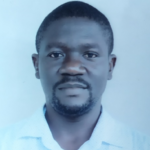
New Model Institute for Technology and Engineering (NMITE)
(Reviewer)
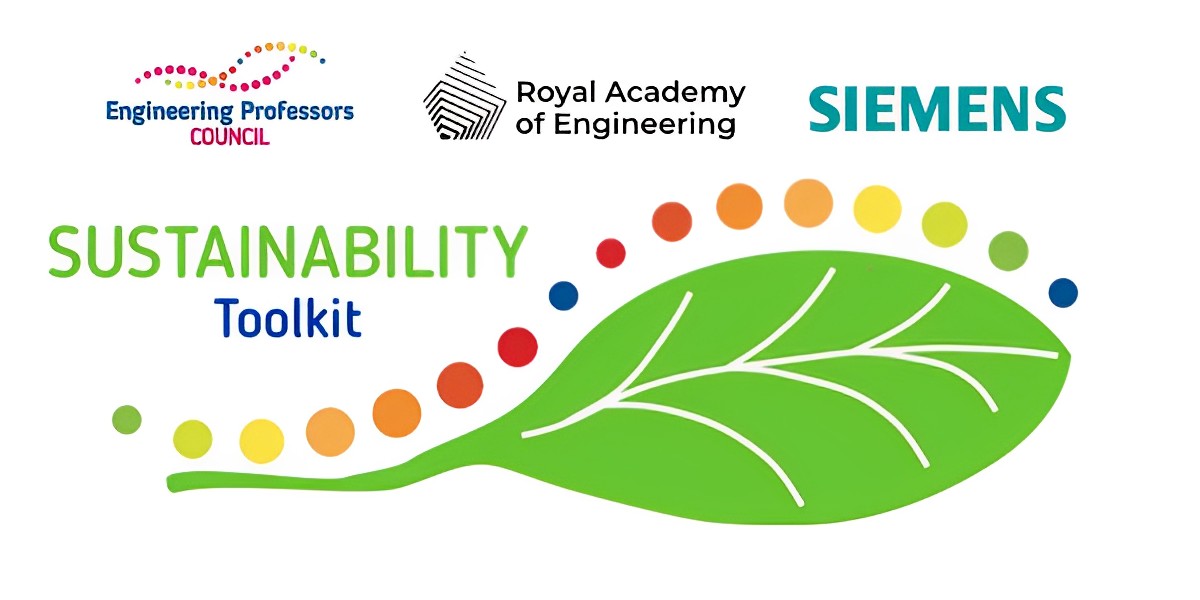 The EPC’s Sustainability Toolkit is supported by Siemens and the Royal Academy of Engineering.
The EPC’s Sustainability Toolkit is supported by Siemens and the Royal Academy of Engineering.